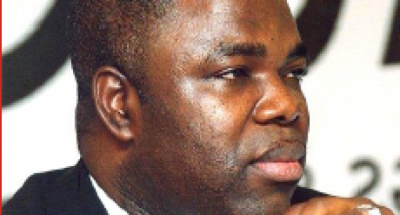The Economic and Financial Crimes Commission (EFCC) has released the former chairman of Skye Bank Plc, now Polaris bank, after questioning him over 2015 election funds.
It was gathered that the Mr Ayeni would be charged before a federal high court in Abuja on Monday.
A Report stated he was invited over abuse of office and illegally injecting funds into the re-election campaign of former President Goodluck Jonathan.
Ayeni was the chairman of the bank from 2010 to 2016 when he was removed by the Central Bank of Nigeria (CBN).
He, however, denied the allegations levelled against him.
Recall that the CBN had taken over the bank on July 4, 2016, and appointed a new management.
Following an audit, the management had written a petition to Acting President Yemi Osinbajo in 2017. Ayeni was accused of wrecking the bank.
He was said to have used his position to obtain the loans to purchase Ntel, take up power distribution with the establishment of Ibadan Electricity Distribution Company and Yola Electricity Distribution Company, which was put at N70 billion.
It was also learnt that the former bank chairman paid back N1 billion out of the debt, last week.
One year after, the CBN revoked the operating licence of the bank, saying it could no longer survive on its indefinite interventions, while a bridge bank, Polaris Bank, was created to take over the assets and liabilities of the bank.
WHAT IS A BRIDGE BANK?
A bridge bank is an institution created by a national regulator or central bank to operate a failed bank until a buyer can be found for its operations
Ayeni’s arrest comes two months after Zainab Ahmed, minister of finance, said all those responsible for the failure of Skye Bank would be prosecuted.
She had directed Umaru Ibrahim, NDIC’s managing director/CEO, to ensure that a thorough investigation was carried out on the failure of the bank.
“The example of the recently wound-up Skye Bank, now Polaris Bank is something we would look into. We would find out what happened. Your investigation must be thorough, we are going to hold whoever is responsible for the failure of that bank,” the minister had said.
“We have to show some examples, we can not just be bailing out banks and leaving perpetrators of the failure of these banks to just go scot-free. Even though you intervene by protecting depositors, but your intervention is limited. You’re not able to pay back all that the depositors have. We must show some examples and this is a good one for us to start with.”













